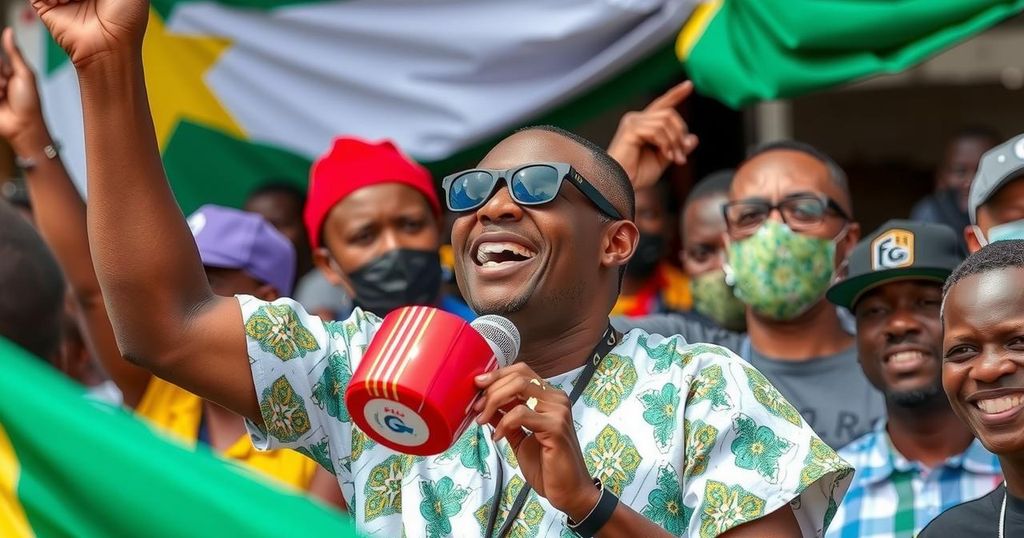Ghana’s opposition party claims provisional results show John Mahama leading the presidential election against Vice President Bawumia, amid ongoing economic struggles. Economic issues dominated the election, and official results are expected by Tuesday after a largely peaceful voting process.
On Sunday, Ghana’s opposition party, the National Democratic Congress (NDC), asserted that provisional election results indicate their candidate, John Mahama, is leading in the recent presidential election. Despite these claims, official electoral authorities have stated that tallying is still in progress. The election primarily featured a competition between Mahama and the Vice President, Mahamudu Bawumia, representing the ruling New Patriotic Party (NPP), who has been trying to mitigate dissatisfaction over government performance and rising living costs.
The economy has been a pivotal issue in this election, with Ghana facing significant challenges such as a debt crisis, currency devaluation, and soaring inflation, which prompted a $3 billion bailout from the International Monetary Fund. Voters were selecting a successor to President Nana Akufo-Addo, who is stepping down due to term limits, as well as electing a new parliament.
Spokesman for the NDC, Sammy Gyamfi, reported that their internal assessments show Mahama receiving 56.3 percent of the votes compared to 41.3 percent for Bawumia, declaring, “It is very clear the people of this country have voted for change.” Meanwhile, preliminary tallies from local broadcaster ChannelOne TV indicated Mahama was ahead based on 42 of the 276 constituencies.
Election Commission Deputy Commissioner Bossman Asare noted that results were still being compiled and not all regional tallies had been reported. Official results are anticipated by Tuesday. Although the voting process proceeded largely peacefully, there were reports of violence, including one fatality in the northern region and another in the central region of Ghana.
Ghana has a longstanding tradition of democratic governance, marked by the alternating rule of the NPP and NDC since 1992. With the electoral slogan “Break the 8,” Bawumia aimed for an unprecedented third consecutive term for the NPP. However, he faced considerable criticism linked to the economic legacy of President Akufo-Addo. Despite the inflation rate declining from over 50 percent to around 23 percent, economic concerns substantially influenced voter sentiment, facilitating Mahama’s return as a formidable candidate following his previous presidential bids in 2016 and 2020.
Ghana has historically maintained a stable democratic system, characterized by competitive elections between its two dominant parties, the NPP and NDC. The current election has been notably influenced by the country’s economic situation, which has deteriorated over recent years, leading to increasing public discontent with the existing government’s performance. Economic factors such as high inflation, debt crises, and currency issues were critical in shaping voter opinions and priorities, ultimately affecting electoral outcomes. The importance of the upcoming election stems from the need for significant policy changes that would address these economic challenges head-on and promote national growth.
In conclusion, while the NDC claims a lead in the provisional results of the presidential election, official declarations from electoral authorities are still pending. The electoral landscape has been significantly shaped by Ghana’s economic difficulties, with voters demanding reform and change. As the nation awaits compilation of official results, the implications of this election will undoubtedly have a lasting impact on Ghana’s political and economic future.
Original Source: www.barrons.com






